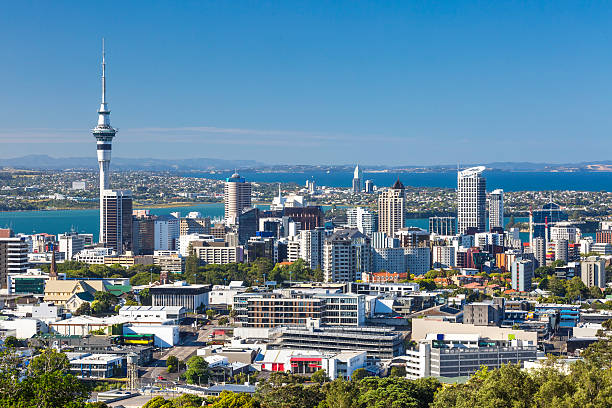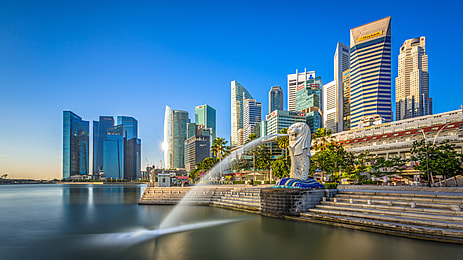Guinea-Bissau Travel Guide: All you need to know to visit Guinea-Bissau in 2024
Welcome to Guinea-Bissau
Guinea-Bissau
This little country includes diverse landscapes, populations, civilizations, and plant and animal life, acting as a microcosm of Africa. The nation’s capital, Bissau, can access anything. However, the tangle of tropical islands that make up the Arquipélago dos Bijagós is the crowning achievement of the nation. Embrace your trip to Guinea-Bissau with our travel advice.
Document checklist for Guinea-Bissau
- Current valid passport
- Valid transit visa
- Sufficient funds
Essential Guinea-Bissau travel information
Currency – The West African CFA franc is the official currency of Guinea-Bissau.
Daily budget for one person – $200
Language – The most common language in Guinea-Bissau is Guinea-Bissau Creole, the country’s official language.
Top 3 cities to visit – Bissau, Bafatá, Gabú
Top 3 landmarks/monuments – Igreja Catolica da Bissau, Presidential Palace, Mesquita Bissau
Socket type – The standard voltage and frequency in Guinea Bissau are 220V and 50Hz, respectively. The corresponding plug type is C.
Time zone – (GMT)
Visa information for Guinea-Bissau
Entry into Guinea-Bissau requires a visa for citizens of India.
Typical costs and budget for Guinea-Bissau
Daily spending – $200 per person
Meals – $40 per person
Transport – $45 per person
Hotel – $60 per person per night
Transport and best ways to travel around Guinea-Bissau
Ferries and riverboats are used to travel to and from the islands. Alternatively, you can board one of the inexpensive but risky pirogues that depart from Porto de Bandim or Porto Pidjiguiti. Although the schedules are erratic and frequently rely on tides, there are currently available ferries that travel between Bissau and Bubaque.
Although there are taxis available within Guinea-Bissau’s cities, the toca-toca or minibus is the most widely used mode of transportation. Taxis may be leased for other locations. However, a private cab’s comfort is unmatched.
Although Guinea-Bissau lacks a well-established rail network, its long-distance bus services are generally dependable. In addition to the Toca-tocos that travel the city’s streets, buses are also available for lengthy distances.
Safety in Guinea-Bissau
Guinea-Bissau experiences political unrest. If you’ve chosen to go to Guinea-Bissau, you should proceed cautiously. It will help if you heed the advice of local authorities in the case of any political upheaval. Keep an eye out for local changes and stay away from vulnerable sites like military bases and administrative buildings. Additionally, you ought to stay away from any public gatherings and demonstrations.
Weather in Guinea-Bissau
Guinea-Bissau has a hot climate with an average annual temperature of 33 degrees. However, there are a few months that are genuinely tropical and humid. The average water temperature is 26 degrees throughout the year, making it comfortable to bathe. Cacheu is the country’s hottest and wettest region.
Famous Cities and Towns Guinea-Bissau
Bissau: The best and most populated city in Guinea-Bissau is Bissau. It serves as the nation’s administrative center. On the nation’s Atlantic coast, the town is situated on the estuary of the Geba River. The nation’s central maritime, military, and administrative hub is the city. The main exports from this city are copra, palm oil, rubber, hardwoods, and peanuts.
Gabú is the largest and most attractive city in Guinea Bissau’s east. Additionally, it serves as the regional. The majority ethnic group here is Falu, and Islam is the predominant religion practiced in this city.
Bafatá: The city of Bafatá sits in the heart of Guinea-Bissau. Amlcar Cabral, one of Africa’s most prominent anti-colonial figures, was born there. Currently, Bafatá serves as both the Bafatá Region’s headquarters and the home of the Bafatá Diocese of the Roman Catholic Church. One of Guinea Bissau’s most well-known cities is well-known for its brick-making sector.
Must do and see in Guinea-Bissau
Dulombi-Boe National Park: The largest of Guinea-Bissau’s national parks is reserved for the most daring of tourists since it is an uncharted and undiscovered country.
Joo Vieira Island: The pair of Joo Vieira and Poilo, a tiny among the renowned Bissagos Islands, is where endangered Atlantic sea turtles scramble over the shells and sandbanks to deposit their eggs.
Bubaque Island: Close to Orango, just over a narrow channel in the Atlantic Ocean to the east, Bubaque’s whitewashed tropical dunes are empty; they are dotted with driftwood that has been salted and leaning palm trees that appear as if they belong in a Castaway movie.
Typical Guinea-Bissau food to try
Grilled Prawns: Prawns that have been grilled are, in fact, succulent and tasty. It compares well to shrimp and prawns in taste and is often prepared from carabinero. It has a delightful foam and is ideal for sauces, soups, and creams.
Yassa Chicken: it is easy to prepare, and onions, garlic, lemon, mustard, and chile are used in the marinade for the chicken.
Fish Stew: it is influenced by Portuguese cooking. Guinea-Bissau’s cuisine is mainly composed of fish and shellfish to make the most of its natural resources.
Vaccine information for Guinea-Bissau
Every traveler should ensure they have had all necessary vaccinations, such as those for measles, mumps, rubella, diphtheria, tetanus, and polio.
Fun facts about Guinea-Bissau
- Women govern the islands of Guinea-Bissau.
- The official language of the nation is Guinea-Bissau Creole.
- In Guinea-Bissau, most people subsist on less than $2 a day.
Related Articles

5 min read
New Zealand Introduces Key Changes to Post Study Work Visa : What You Should Know
According to the government, this change will provide students with greater flexibility in their academic choices while ensuring they remain eligible to work. For many students, studying abroad is a
Read More
5 min read
The Singapore visa processing time for Indian citizens
Singapore is a small island located in the Malay Peninsula in Southeast Asia. It is one of the most economically developed countries in the world. Singapore is a fantastic place
Read More
5 min read
How Much Does an Australia Trip Cost from India?
If you are planning a trip from India to Australia, you must follow some of the points. that are : Planning Budget Traveling date and time To which place you
Read MoreTo enter Guinea-Bissau, Indian people must get a visa. Visa applications for Guinea Bissau can be made in person at the airport or online through us.
A short-stay visa with only one entry is available for up to 30 days. Depending on the sort of visit and length of stay, there are also several entrance visa choices to pick from. Indian nationals may request a long-stay or 90-day visa with multiple entries if they often visit Guinea Bissau.
The type of admission that is allowed must be carefully considered. For example, the bearer of a visa with a single entrance restriction may only enter and exit Guadeloupe once; however, a visa with multiple entry restrictions may permit repeated entries and exits.
The immigration staff at the airport serving Guinea-Bissau has the last say on whether to grant entrance permission.
The typical time to complete all processes and obtain a visa upon arrival is 30 minutes. The timing may change, though, based on when people are traveling the most.
